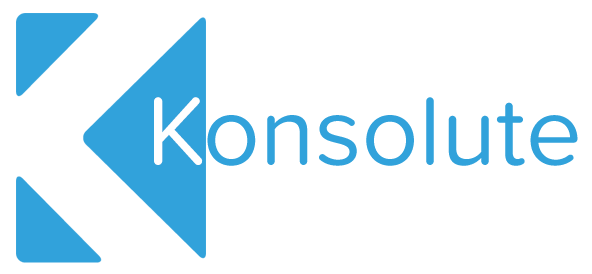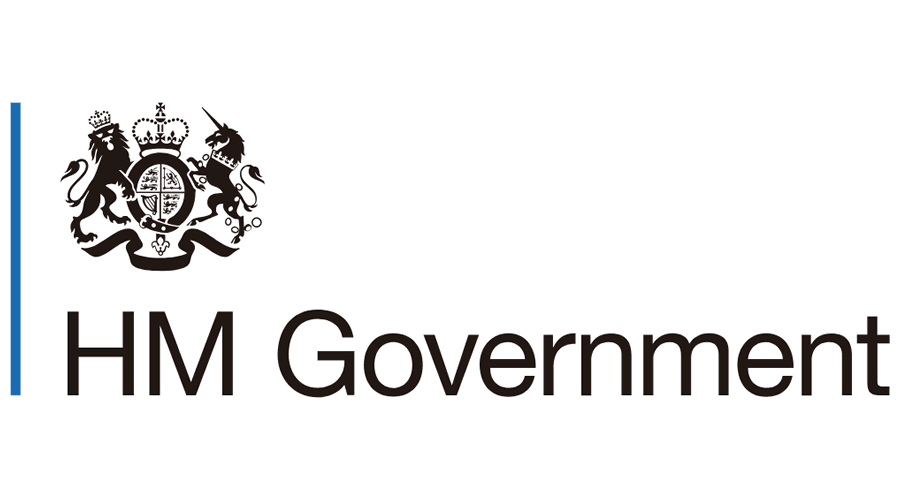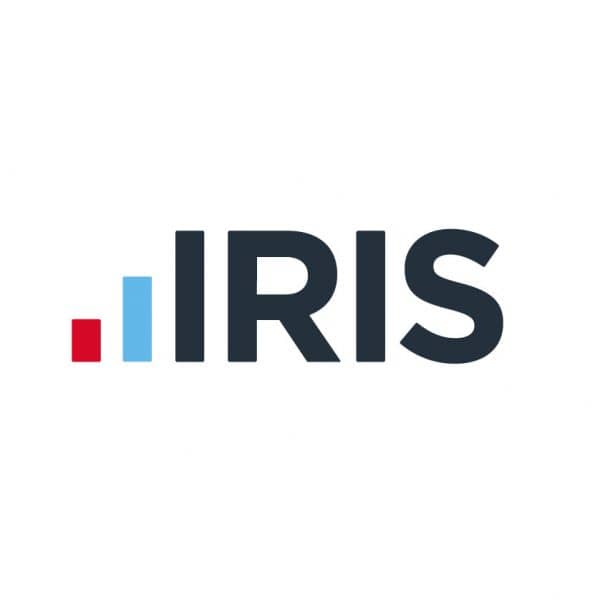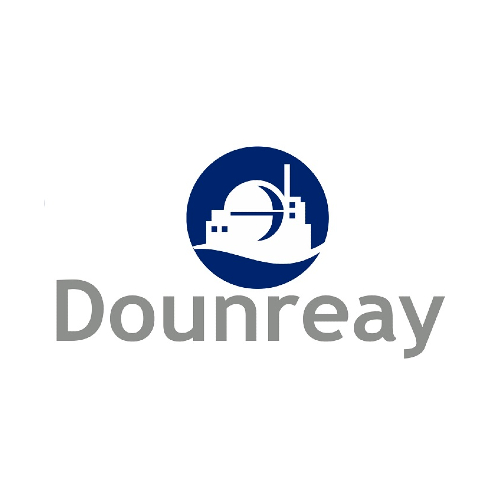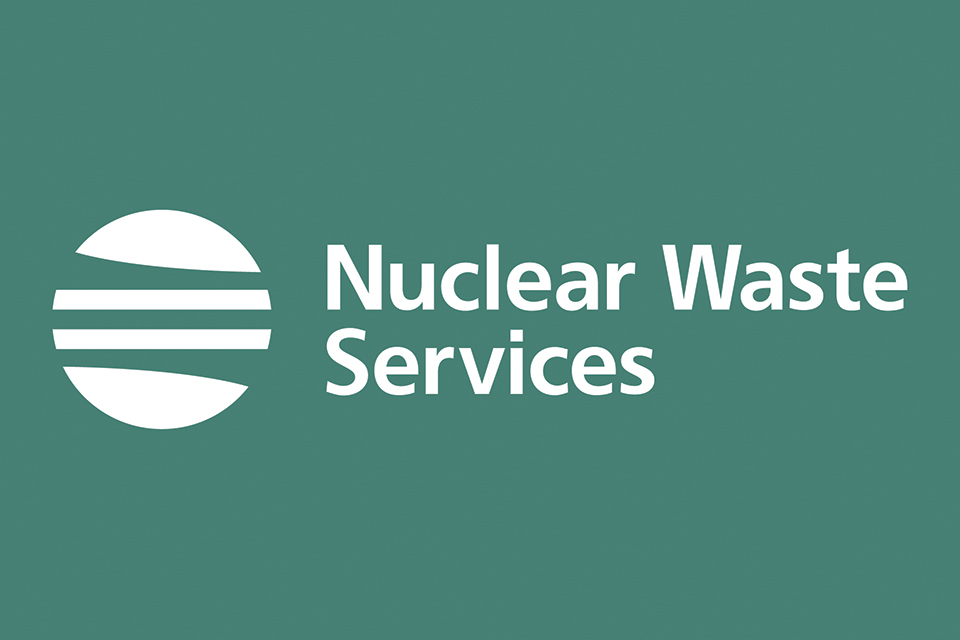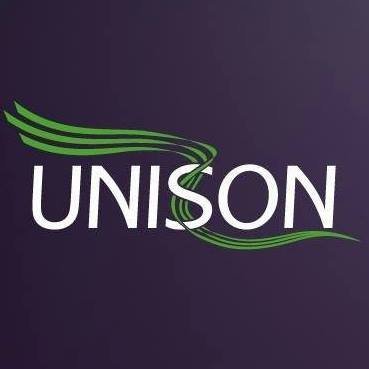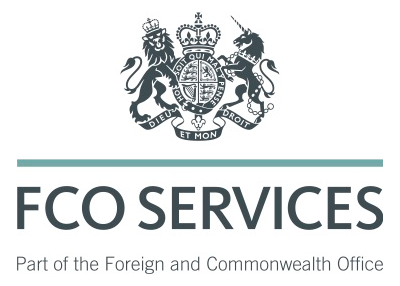Konsolute assists a UK government department move 30 million files from OpenText's LiveLink to SharePoint Online
case study
Konsolute assist UK government department move 30 million files from OpenText's LiveLink to SharePoint Online
Konsolute, a leading technology solutions provider, has been at the forefront of assisting a central government organisation, based in the United Kingdom, in their digital transformation journey. One notable success story involves the seamless migration and transformation of data from OpenText's LiveLink system to Microsoft's SharePoint Online.
Challenge
In the face of evolving technological landscapes, many central government organizations encounter challenges with legacy systems, including the need to migrate critical data from platforms such as OpenText’s LiveLink. These challenges often include outdated infrastructure, complex data structures, and the imperative to enhance collaboration and accessibility.
Numerous government departments throughout the United Kingdom historically opted for LiveLink as their enterprise document management system. LiveLink enabled these government directorates to organise and manage their organisational content and documents throughout their lifecycle.
The UK government has been endorsing the adoption of Microsoft 365 across central and local government entities. This endorsement aligns with their initiative to standardize Microsoft 365, aiming to modernize and streamline digital services within the government. Their decision is driven by various factors, including the platform’s collaboration features, security capabilities, and cloud-based infrastructure. By adopting a standardized platform, the government aims to achieve greater interoperability, cost savings, and enhanced collaboration among its departments and agencies.
The government organisation approached Konsolute to migrate 30 million files consisting of structured / unstructured data totalling around 7 TB to their Microsoft 365 platform.
Strategy
Konsolute undertook a strategic three-phase approach for a seamless LiveLink to SharePoint migration on Microsoft 365. In the initial phase, emphasizing a modernized information architecture and robust security framework to leverage the enterprise features available on the Microsoft Cloud platform.
The subsequent phase involved the development of scripts interfacing with LiveLink APIs. These scripts extracted raw files, versions, and metadata, ensuring the prepared data was ready for effortless ingestion into SharePoint Online.
The third and final phase involved the development of customized migration scripts. These scripts played a vital role in transforming the raw files and metadata extracted from LiveLink into a specified format aligning to the SharePoint Migration APIs.
Result
Konsolute successfully migrated the 7 TB and 30 million files within the scheduled timeline. The restructuring of information helped the government organisation in the following:
- Departmental Collaboration: Enhanced collaborating with other governmental departments, enabling seamless document sharing, project coordination, and communication across various teams
- Cost Efficiency: Reduction in operational costs by removing the additional licences costs and extensive on-premises infrastructure
- Copilot / Artificial Intelligence: Utilise AI capabilities available on the Microsoft 365 enabling the organization to search and discover information intelligently
- Security: Robust security platform built around compliance. Automated compliance checks and advanced security measures help maintain data integrity allowing the organization to adhere to legislative and regulatory requirements
- Integration with Office Productivity Tools: Integration with familiar productivity tools such as Word, Excel, PowerPoint, and Teams
- Automation: Automation tools like Power Automate assists the government department to reduce manual tasks, and enhancing overall operational efficiency
- UK government
- Microsoft 365
- SharePoint Online
- Power Automate
- Power BI
Enhancing Contract Management Efficiency with Microsoft 365
case study
Enhancing Contract Management Efficiency with Microsoft 365 for Iris Software
Iris Software are an organisation who build software for accountants, schools, HR and finance teams to solve some of the most important operational business problems. Iris Software drastically reduces the time spent on administration and reporting; and generating actionable data insights to make better business decisions for business functions such as Accountants, schools, payroll and HR.
Challenge
When Iris Software decided to develop a Contracts Management System built on Microsoft 365, they sought the expertise of an accredited Microsoft Partner. Their search led them to a trusted Microsoft Gold Partner capable of assisting them in the creation of a specialised Contracts Management System based on Microsoft 365.
The Contract Management System would enable Iris to automate and streamline the process of creating, managing, and monitoring contracts throughout their lifecycle. Providing a centralised platform to store, organise, and track their contracts, enabling efficient contract administration and ensuring compliance with their contractual obligations such as DPA and GDPR.
Strategy
Konsolute successfully deployed an enterprise-level Contract Management System for Iris Software, harnessing the power of Microsoft Cloud and leveraging products and technologies from Microsoft 365 and Azure stack. The implementation of the system brought forth a multitude of features and benefits, some of the notable enhancements included:
- Centralised Contract Repository: All contracts were consolidated within a secure, centralised repository, enabling easy access and retrieval. Contracts were organised systematically with powerful search capabilities, eliminating the risk of lost or misplaced contracts, de-duplication and providing a singular source of the truth
- Streamlined Contract Creation and Editing: The system offered standardised contract templates and intuitive editing tools, simplifying the contract creation and modification process. Collaborative features allowed multiple stakeholders to review and contribute to contract terms, resulting in faster turnaround times.
- Proactive Tracking and Notifications: The system automated contract tracking, ensuring timely action on key milestones, such as renewal and termination dates. Automated notifications and alerts were implemented, reducing the likelihood of missed deadlines and contractual obligations.
- Efficient Approval Workflows: The contract management system streamlined approval workflows, eliminating manual routing and enabling electronic signatures. This significantly reduced the time required to obtain approvals and increased process efficiency.
- Comprehensive Reporting and Analytics: Robust reporting and analytics capabilities using using Power BI provided Iris Software with valuable insights into contract performance, risks, and opportunities. The ability to generate customised reports enabled informed decision-making and strategic planning.
Result
The implementation of the Contract Management System proved to be a success for Iris Software. The organisation experienced a remarkable improvement in contract management efficiency, compliance, and overall productivity. The centralised repository built upon SharePoint Online and streamlined processes minimised risks associated with contract mismanagement and improved visibility into contractual obligations.
Iris Software realised several tangible benefits, including reduced contract administration costs, increased employee productivity, enhanced compliance with contractual terms, and minimised legal and financial risks. The implementation of the Contract Management System positioned Iris Software as a more agile and effective organisation, capable of efficiently managing its contractual relationships.
- Software Industry
- Microsoft 365
- SharePoint Online
- Power Automate
- Power BI
Implementing a Quality Management System for Improved Efficiency and Regulatory Compliance at Dounreay
case study
Implementing a Quality Management System for Improved Efficiency and Regulatory Compliance at Dounreay
Dounreay is a nuclear site located on the north coast of Scotland that was once used for experimental nuclear research and development. The site was operational for over 50 years and has a complex legacy of radioactive waste and contamination. In 2005, the UK Government established the Nuclear Decommissioning Authority (NDA) to oversee the decommissioning of the site and ensure that it is safely managed for future generations.
Challenge
Decommissioning a nuclear site is a complex and challenging process that involves the safe removal of radioactive materials and the dismantling of facilities and structures. The process requires careful planning, management, and execution to ensure that it is completed safely, efficiently, and cost-effectively. Quality is essential in the decommissioning process to ensure that the work is carried out to the highest standards and that the safety of workers and the environment is not compromised.
The decommissioning of a nuclear site involves a range of activities, including dismantling buildings, removing waste, and decontaminating surfaces. These activities require specialist skills, equipment, and processes, and must be carried out to strict regulatory and legislative requirements to ensure that they are safe and effective. Quality is essential in every aspect of the decommissioning process, from the design of decommissioning plans to the selection of contractors and the implementation of work activities.
Strategy
Konsolute delivered an enterprise level Quality Management System (QMS) built upon the Microsoft Cloud which leveraged products and technologies from Microsoft 365 and Azure. QMS provided Dounreay with a framework to establish, implement, maintain, and continually improve their quality management processes. One important aspect of a QMS is document management, which involves the creation, review, approval, and control of documents, including policies, procedures, and records.
For Dounreay, a key benefit of implementing a QMS was that it helped the organization to adhere to their regulatory and legislative requirements related to recordkeeping. Records are an essential component of the decommissioning process, as they provide evidence of the work carried out, the materials used, and the outcomes achieved. Regulatory bodies such as the Office for Nuclear Regulation (ONR) require that records are accurate, complete, and maintained for a specified period.
The QMS implemented by Dounreay provided a standardized approach to document management, which ensured that all records were properly created, reviewed, approved, and controlled. The QMS also provided a centralized repository for records, which made it easier for the organization to manage and retrieve records when required. The QMS also helped to ensure that records were retained for the required period, and that they were disposed of securely when no longer needed.
Result
Konsolute delivered an enterprise level Quality Management System (QMS) built upon the Microsoft Cloud which leveraged products and technologies from Microsoft 365 and Azure. QMS provided Dounreay with a framework to establish, implement, maintain, and continually improve their quality management processes.
QMS also helped the organization to adhere to their regulatory and legislative requirements related to recordkeeping. Records are an essential component of the decommissioning process, as they provide evidence of the work carried out, the materials used, and the outcomes achieved. Regulatory bodies such as the Office for Nuclear Regulation (ONR) require that records are accurate, complete, and maintained for a specified period.
QMS utilized Microsoft 365 which provided the organization with a range of tools for collaboration and communication, which helped to streamline the review and approval process for documents. This reduced the amount of time required to complete reviews and approvals, which helped to improve efficiency and reduce costs. Furthermore, Microsoft 365’s enterprise security and compliance features, enhanced Dounreay’s security and compliance posture by protecting sensitive data and ensuring that Dounreay was meeting its legal obligations.
In summary, QMS helped Dounreay to adhere to their regulatory and legislative requirements related to recordkeeping by providing a standardized approach to document management and a centralized repository for records. This helped to ensure that all records were properly created, reviewed, approved, controlled, and retained for the required period as per their regulatory requirements.
- Nuclear industry
Streamlining Internal Communications for Nuclear Waste Services
case study
Streamlining Internal Communications for Nuclear Waste Services: A Case Study on Konsolute's Modern Intranet Solution
Nuclear Waste Services (NWS) brings together the UK’s leading nuclear waste management capabilities. In 2021 Nuclear Decommissioning Authority (NDA) announced the merger of two organisations, namely Low Level Waste Repository (LLWR) and Radioactive Waste Management (RWM) to create an organisation focused on the management of the UK’s nuclear waste, safely and securely for generations to come.
NWS is committed to providing permanent solutions to the UK's nuclear waste, which has been produced and managed on an industrial scale since the 1940s. NWS approach and capabilities for waste management have adapted to keep pace with NDA's ambitious decommissioning goals, including a commitment to recycle 50% of waste from decommissioning and reduce secondary wastes by around 70% by 2030. NWS is dedication to create a sustainable and efficient nuclear waste management solutions ensures a brighter, safer future for generations to come. As a part of the NDA group, NWS is responsible for managing the UK's nuclear waste, ensuring that it is disposed of safely and securely for generations to come. With their ambitious goals and integrated approach, NWS is a vital player in the UK's nuclear waste management landscape.
Challenge
During the merger between LLWR and RWM that formed Nuclear Waste Services (NWS), effective communication was crucial to ensure a smooth transition and alignment of goals. With multiple departments and teams coming together, it was essential to create a cohesive culture, clarify roles and responsibilities, and establish a shared vision for the future. Effective was essential in in building trust, minimizing uncertainties, and reducing resistance to change.
Content Managers from both organisations required a platform to create and distribute content that was relevant across both organizations whilst having the ability to uniquely cater content specific to an organization. It was essential that the solution would offer collaborative platform to share knowledge, reach out to a wider audience and ensure that employees were informed up-to-date information.
Strategy
It was decided to use SharePoint Online as as the underlying platform due to its capabilities for enterprise-level collaboration and communication for creating a Modern Intranet solution. The strategy of introducing an Intranet during a merger was vital in promoting effective communication and collaboration between different teams and departments. In the case of Nuclear Waste Services (NWS), the merger between LLWR and RWM presented an opportunity to create a unified platform that would streamline communication and facilitate knowledge sharing among employees.
The Modern Intranet was built on SharePoint Online, which was taken to the next level by leveraging Konsolute’s Intranet Widgets. The Widgets enabled the organisation to enhance collaboration and user experience on the Intranet.
Audience targeting enabled Content Managers from both organizations to target content to specific user groups based on their organization as well as run campaign on targeted days. This personalized approach resulted in higher user engagement and satisfaction. Users felt that the Intranet was tailored specifically for them, leading to increased productivity and collaboration.
In addition to the personalized targeting, Microsoft Viva feature were leveraged to enhance the Intranet. Microsoft Viva used AI-driven signals to suggest relevant information to employees, empowering them to make informed decisions and stay up to date on the latest information.
To ensure the seamless and secure experience, the tenant leveraged new collaboration features such as Azure B2B, which worked in conjunction with Azure AD’s Conditional Access Policies and Sensitivity Labels. This ensured that employees had the best user experience whilst remaining secure.
Result
The Intranet played a key role in disseminating important information about the merger, such as the vision, goals, and organizational structure of the new company. By keeping employees informed and engaged, an Intranet helped to reduce uncertainty and anxiety during the transition period, while fostering a sense of shared purpose and commitment to the success of the new organization.
The Intranet enabled the organisation to share critical information and resources across the organization which helped to break down silos and promote collaboration between teams, enabling NWS to leverage the collective expertise and capabilities of its employees to achieve its objectives more effectively.
- Nuclear industry
- Modern Intranet
- Microsoft Viva
- SharePoint Online
- Microsoft Power Automate
Konsolute's Microsoft 365 Migration and App Development Solution for Unison
case study
Konsolute's Microsoft 365 Migration and App Development Solution for Unison
UNISON is one of the UK's largest trade unions, with 1.3 million members. They represent staff who provide public services in the public and private sector. Konsolute worked with Unison migrating their content from on-premises to the Microsoft 365 cloud, modernising and redeveloping their apps to utilise features of the Microsoft cloud and maximise their return on investment.
Challenge
Unison were looking to unlock the remote connectivity and collaboration benefits that come with the use of the Microsoft 365 platform. The global pandemic only accelerated the need to support Unison users working in all locations, and Unison needed to provide seamless file sharing between teams, tools, devices, and departments from virtually anywhere.
Unison faced several challenges in this project. They had a large amount of content stored on on-premises servers, and they needed to ensure that this content was migrated seamlessly to the cloud without any data loss or disruption to their operations. In addition, they had several custom-built apps that needed to be redeveloped to work in the Microsoft cloud environment.
Strategy
Konsolute provided a comprehensive solution to help Unison overcome these challenges. Konsolute created a detailed implementation plan by conducting a comprehensive Discovery Phase based on Unison’s key requirements. Konsolute organised requirement workshops where Unison sites were analysed and mapped, from which a strategic roadmap for the rollout to SharePoint Online was created. A phased rollout was then implemented according to the strategic roadmap. The phases of the rollout were communicated with the customer in order to ensure that the implementation process did not interrupt the their ongoing business processes.
During the Discovery Phase, Konsolute also conducted workshops with stakeholders and users across the company to identify User Stories. These User Stories helped build a picture of the individual requirements of Unison users.
In addition to the data migration, Unison had several custom applications that that were used in SharePoint 2013 on-premise. Once again, Konsolute conducted requirement gathering workshops so that they could redevelop these custom applications for integration with SharePoint Online and the Microsoft Power Platform.
Result
Konsolute were able to successfully migrate all Unison content to Microsoft 365 with full cloud functionality. This enabled Unison to cut their costs for IT infrastructure, remove unstructured data, reduce the number of document storage locations, and improve their information governance. Konsolute implemented a full Microsoft 365 tenancy that granted access to remote users, enhancing Unison’s collaborative abilities.
Konsolute conducted an agreed upon pilot migration of regional sites followed by a phased rollout in order to tailor the process to stakeholders’ requirements and reduce the impact to existing business processes. Konsolute were able to successfully redevelop all previously incompatible workflows and applications for SharePoint Online. The migration and implementation of Microsoft 365 by Konsolute resulted in an upgraded system for Unison that improved the user experience and increased productivity across the organisation.
- Non-profit
- Not-for-profit organisation
- SharePoint Online
- Microsoft PowerApps
- Microsoft Power Automate
Low Level Waste Repository partners with Konsolute for a successful Digital Transformation journey to the Microsoft Cloud
case study
Konsolute act as the Low Level Waste Repository’s Strategy Cloud Partner to achieve a landmark Digital Transformation
Konsolute worked with the Low Level Waste Repository (LLWR) to achieve a successful digital transformation with Microsoft 365. The project has delivered enterprise level communication, collaboration and security for the NDA subsidiary. This Case Study includes contributions from the Executive Team at LLWR including the IT Manager (Paul Bell), Programme Manager (David Little) and Chief Information Security Officer (Simon McNichol).
Solution Summary
LLW Repository Ltd (LLWR) is a nuclear site licence company. The organisation is responsible for the management and operation of the UK’s national facility for permanent disposal of low-level radioactive waste. After a recent transition, the company is now a subsidiary of the Nuclear Decommissioning Authority (NDA) and have subsequently taken on the responsibility of delivering the National Waste Programme. They strive amongst other things to help waste producers find alternative reuse, recycling, treatment and disposal routes. At present, LLWR’s ethos is aligned with the NDA’s mission; to clean up the UK’s Nuclear legacy.
Konsolute have worked with LLWR to complete a Digital Transformation of the entire business ecosystem, helping to automate business processes, establish an Electronic Documents Records Management System (EDRMS) for the maintenance of their records and the benefit of external ISO Standard adherence and create a zero-trust Microsoft 365 environment on the cloud. Konsolute was thrilled to facilitate this long-term goal for LLWR and encourage the wider Nuclear Industry make that leap towards the cloud- a journey that the NDA estate is now on too.
Challenge
LLWR recognised the need to modernise their IT infrastructure and embark on a digital transformation journey aimed at achieving several key objectives, including enhancing collaboration, improving data security, and achieving greater efficiency. To accomplish this ambitious goal, LLWR partnered with Konsolute, a trusted Microsoft Gold Partner renowned for its expertise in digital transformation and cloud solutions.
One of the primary challenges identified by LLWR was the need to modernise their legacy systems and take advantage of the powerful security and toolsets offered by Microsoft cloud platform. The executive team at LLWR recognised that a private cloud was not a sufficient solution for their needs, citing its high costs and lack of flexibility. As a result, LLWR was eager to explore the Microsoft cloud offerings that would enable them to streamline their business processes and align their internal growth with the wider NDA vision and roadmap.
LLWR faced challenges in wider organisational adoption, as the Executive team noted a limited appetite for moving sensitive information into the cloud due to a lack of trust and a traditional thinking favoured on-premise infrastructure. Simon, a key member of the team, noted that the cloud was still a relatively new concept in the sector at the time. To address this challenge, Konsolute identified the need for better channels for communication and collaboration that were easily accessible, as well as providing the correct training to ensure successful adoption.
Solution Strategy
Konsolute’s approach to the programme was carefully structured in a three-phased methodology, strategically progressing from security foundation and collaboration to data identification and classification with Konsolute’s Kolumbus, and ultimately culminating in a comprehensive data migration plan.
Assessing the cloud readiness of LLWR was a fundamental step in determining the project’s starting point and goals. Our assessments enabled us to provide valuable recommendations, plan essential activities and establish key milestones. Our initial strategy was geared towards securing LLWR’s environment with a zero-trust, mobile-ready platform. This approach laid a robust foundation for the project and provided stakeholders with reassurance of data security in the tightly regulated industry.
A zero trust model was implemented for LLWR to enhance their security posture. This model ensures that network traffic was treated as untrusted, and access to resources were granted based on a user’s identity, device posture, and risk level. We utilised several features, such as conditional access policies, multifactor authentication, privileged identity management, and data loss prevention policies. These features allowed LLWR to restrict access to critical resources, monitor user activity, and prevent unauthorised access to sensitive data. Additionally, we implemented Microsoft Intune for device management to ensure that only authorised and compliant devices were allowed to access corporate resources. By leveraging these features, we were able to establish a highly secure environment that provided LLWR with optimal protection against cyber threats.
Konsolute’s in-house products, such as Reflekt, Intranet, and Virtual Academy, were used to facilitate collaboration within LLWR. The usage of these Konsolute products with Microsoft 365 services enabled LLWR employees to work together more efficiently, improving productivity and increasing security. This integration also ensured compliance with Microsoft governance policies, which is critical for organizations in regulated industries. Overall, the use of Konsolute products was instrumental in improving collaboration and streamlining processes within LLWR.
Konsolute utilised their in-house product, Kolumbus, to aid in the data migration process during the final phase of their strategy. Kolumbus provided data discovery, visualisation, and assisted business leaders in determining which data and documentation should be migrated to the cloud. Konsolute’s data migration strategy involved defining the information architecture first, followed by a pre-migration stage, then a pilot phase, and ultimately a staged delta migration, which minimized risks. By using Kolumbus for data migration, Konsolute experienced several benefits such as increased efficiency, cost savings, customization, control, and data security.
At each stage Konsolute’s strategy was geared to maintain transparency with stakeholders and business managers, conducting regular workshops and playback sessions to keep everyone moving towards the same goal.
Result
LLWR has surpassed the digital transformation curve and emerged as a pioneer in the Nuclear Sector in terms of security and cloud adoption. Konsolute successfully implemented a zero-trust environment for secure collaboration, which was a crucial objective. In Phase Two of the transformation, Konsolute prioritized collaboration by leveraging Microsoft 365 stack, Teams, and their own learning and governance platforms, building on the enterprise-level zero-trust platform.
Despite the challenges posed by the global pandemic, LLWR and Konsolute achieved significant milestones in their project, with remote implementation being a particular success. Despite being entirely online, the deployment of teams was completed without any issues or negative feedback, representing a major success from a business change perspective. Konsolute provided LLWR with a unified document management platform, ensuring the security and compliance of all data, including the ability to archive and dispose of data according to regulatory requirements. LLWR’s compliance with ISO 9001 and 45001 was also ensured. Additionally, Konsolute streamlined LLWR’s business processes, allowing for automation and improved efficiency and auditing.
In David’s words, “Konsolute come with a vast amount of experience, not only with what they deliver, but in their wider knowledge of the LLWR estate, culture and the people involved which is of a benefit especially as we enter phase three of the project.” He also mentioned that Konsolute’s holistic approach at every stage of the project has provided companywide reassurance. David acknowledged that Konsolute has gone above and beyond in delivering an excellent product for LLWR, driven by their client-centric ethos.
"Konsolute have provided a fantastic holistic approach to the project with business change coaching and implementation aiding user adoption. In some ways, it was easy to predict what Konsolute would bring to the table in terms of technology but I think the introduction of Virtual Academy has been pivotal and a key positive."
"Konsolute have provided a fantastic holistic approach to the project with business change coaching and implementation aiding user adoption. In some ways, it was easy to predict what Konsolute would bring to the table in terms of technology but I think the introduction of Virtual Academy has been pivotal and a key positive."
- David Little, LLWR Programme Manager
- Nuclear
- NDA (Nuclear Decommissioning Association)
- UK Government
- Auto Classifier
- Kolumbus - AI Data Discovery Tool
- SharePoint Online
- Virtual Academy
- ISO Certified Quality Management System
- EDRMS
Konsolute delivers a modern connected Intranet for Bedfordshire Fire and Rescue Service
Case study
Bedfordshire Fire and Rescue Service
Konsolute delivery a modern Intranet built on Microsoft 365 which enabled Bedfordshire Fire and Rescue Services to communicate effectively across their organisation and bring together people, services, topics into a solidated platform
Solution Summary
Bedfordshire Fire and Rescue Service (BFRS) is the fire and rescue service for the county of Bedfordshire. Within its values of serving the community and protecting citizens from fires and other emergencies, one of the key aims of BFRS is to utilise assets effectively and to maximise the use of data analytics and digital solutions to drive improvements. Konsolute worked with BFRS to help them achieve this aim, provisioning a comprehensive intranet as part of a wider SharePoint Online solution.
Challenge
BFRS has fourteen strategically positioned fire stations around the county of Bedfordshire, with headquarters located in Kempston alongside an emergency communication centre, training centre, fire station, and equipment maintenance workshop. There are also two offices located in the north and south of the county housing the Community Engagement Team. The authority employs over 560 members of staff spread across these disparate locations, demanding a comprehensive online solution to maintain open communication channels and collaborative working amongst all members of the organisation. The authority also operated its fire stations 24/7, 365 days a year, either with permanent staff or using an RDS system, meaning all online systems must be reliable and available at all times.
- Government
- Frontline Services
- Microsoft 365
- SharePoint Online
- Power Automate
- Power BI
- Konsolute Modern Intranet
Solution Strategy
Konsolute first outlined and undertook an implementation period consisting of three phases: a Discovery phase, a system design and configuration phase, and a reporting collaboration and mobile working phase. This period enabled us to determine the specific requirements of BFRS in detail before implementing the solution steadily through test and review stages, ensuring that it delivered the required results to the client.
Konsolute delivered the Discovery phase by firstly engaging with stakeholders to capture requirements through workshop sessions. We encouraged all aspects of the organisation to participate in these workshops in order to gain a cross-sectional representation of the business. As part of the workshops, we endeavoured to demonstrate some of the products and features of Office 365 that would be applicable to the workshop’s attendees. Through these workshops, we made the requirement gathering process interactive, asking attendees to discuss their issues and concerns relating to processes undertaken on existing platforms as well as discussing future requirements. These issues, concerns, and requirements were grouped together to form the basis of user stories.
The user stories were then mapped into a technical roadmap and prioritised in order to design a SharePoint Online solution capable of delivering BFRS’s business requirements. As a part of Sprint planning, we invited all stakeholders and product owners to define the “Sprint”. Each Sprint endeavoured to deliver complete User Stories, and typically ran for approximately two weeks. The overall outcomes of the Discovery phase formed an MVP (minimum viable product) which provided detailed information on the proposed solution, resulting in the key design principles of: enabling all information sources, boosting the employee experience, fostering open collaboration, enabling flexible and smarter working, ensuring security and compliance, and successful governance. The resulting solution was assessed against the defined design principles and remediated based on user feedback as part of the pilot stage.
The results of the Discovery phase were also used as a basis on which to design a training plan. In-person user training was implemented alongside a learning portal, allowing users to navigate and view the training materials most applicable to them.
Result
The intranet system implemented by Konsolute enabled staff across the various offices of the Bedfordshire Fire and Rescue Service to remain connected and collaborative regardless of location, offering all members of the workforce effortless access to central information and open communication channels to key team members across the organisation. Hosted on SharePoint Online, the Intranet integrated seamlessly with the existing and new elements of the BFRS Microsoft 365 system. The SharePoint Online capabilities, including “audience targeting”, enabled the users of the BFRS intranet to view information intelligently based upon their membership of certain sites or teams, removing search time from the workday and making daily tasks more efficient. Overall, working with Konsolute left BFRS with a far more connected and efficient working style, with all members of the organisation able to communicate and view information in one convenient and easy-to-use central location.
Konsolute delivers a digital transformation for Foreign Commonwealth Office Services
Case study
Foreign Commonwealth Office Services (FCOS)
Konsolute delivery a modern Intranet built on Microsoft 365 which enabled FCOS employees across various office locations and speaking various languages to communicate effectively
Solution Summary
FCO Services are part of the Foreign & Commonwealth Office (FCO), operating commercially as a Trading Fund who provide a range of integrated services such as security services worldwide to the FCDO and other UK government departments, supporting the delivery of government agendas. FCO Services operate and deliver worldwide, working with over 250 embassies, high commissions, and other critical government facilities across 168 countries.
Konsolute carried out the design, development, and implementation of a collaborative platform programme for FCO Services which included the successful delivery of their modern Intranet solution.
Challenge
The FCOS organisation involves collaboration between both internal and external workers based in offices all over the world. Furthermore, the staff working in these locations operate in various languages, making FCOS a multicultural and multilingual organisation. FCOS therefore required an Intranet solution capable of connecting employees across locations worldwide, opening communication channels and enabling ease of access to essential information by members across the organisation. The FCOS Intranet fundamentally needed to connect members of the organisation to key information, people, and services across locational, cultural, and linguistic barriers, supplying a free flow of information to the workforce in its entirety. This information should be presented to individual employees based on their specific job roles and requirements, allowing each member of the workforce to prioritise the information that they care about the most.
The solution needed to be easily customised to reflect the branding and vision of FCOS as an organisation in order to foster a cohesive company culture across its multiple locations. It also had the role of ensuring transparency across the organisation, enabling all employees to access a central hub of information and putting transparency at the very heart of the company culture.
As part of a wider SharePoint-hosted system, FCOS’s Intranet needed to be capable of integrating fully with Microsoft 365, giving employees access to an important line-of-business applications through one centralised system. This included the building out of business-critical applications, using the Microsoft Power Platform.
- Government
- Ministerial Department
- Microsoft 365
- SharePoint Online
- Power Automate
- Power BI
- Konsolute Modern Intranet
Solution Strategy
Konsolute set up a detailed implementation plan according to the client’s key requirements through conducting a comprehensive Discovery Phase. During the Discovery Phase we conducted workshops and discussions with stakeholders and users across the company to identify key personas and User Stories, helping us to build a picture of the individual requirements of FCOS users. The Discovery Phase better informed our implementation plan for the specificities of the client.
Konsolute used their proprietary product known as ‘Kolumbus’ to infer an Information Architecture from their existing data repositories which included SharePoint and Lotus Notes databases. This process classified data into categories and sub-categories, creating taxonomies and giving a holistic view of the data created across the organisation. Kolumbus’ centralised dashboard gave a comprehensive view of the organisational data from which unstructured data could be queried and information architecture could be established.
A phased rollout was then introduced. This involved rolling-out the Intranet to various departments within the organisation to facilitate discussion and feedback on the solution. This feedback was noted and used to inform changes and updates to the solution, concluding in an organisation-wide rollout of the final solution.
Finally, employee training sessions for the new Intranet solution were hosted, enabling end-users to utilise the new solution to its maximum potential and in the best way to benefit the specific needs of their job role.
Result
The Intranet enabled FCOS employees across various office locations and speaking various languages to communicate effectively. The Intranet’s inbuilt enterprise social networking capabilities, using tools such as Microsoft Yammer, enabled employees to stay connected via the corporate Yammer feed. Employees were enabled to connect across social media channels and create blogs and surveys, opening communication channels and fostering connectivity across the organisation’s departments and locations. The ability of the Intranet to work across all devices, without impacting the effect on the end user, ensured that all users could remain connected even when out of the office or travelling.
Using the targeted audience capabilities of SharePoint and Konsolute’s range of SharePoint Online components, the Intranet provided users with an employee centralised view. Feeding them with information connected to their projects or departments based on the sites and teams they participate in. The site structure encouraged the breakdown of silos across the organisation, allowing projects and interest groups to be found. Tailored information was made available to each user through a personalised Intranet home screen, engaging and immediately presenting users with relevant and interesting information. This resulted in reduced search time for daily activities and an overall more up-to-date workforce.
The fully tailorable Intranet design also enabled FCOS to maintain brand integrity and to present organisational values to their workforce. With a completely customisable design and features, the new Intranet was successfully tailored to reflect the key aims and vision of FCOS.
The SharePoint Online-based Intranet solution integrated seamlessly with the organisation’s existing Microsoft 365 tenancy, meaning employees could access familiar business applications via one centralised location. The structured and intuitive design reduced the confusion of working cross-platform, therefore simplifying the end-user experience.
Konsolute delivery a Modern Intranet Solution for the Accent Group built upon Microsoft 365
Case study
Accent Housing Group
Konsolute delivered a modern intranet solution for the Accent Group bridging the gap between frontline workers and the rest of the organisation, enabling workers in the field to access the relevant information from wherever they are.
Solution Summary
Accent Group are a housing association, managing homes for several local authorities across England and Wales. Accent Group manage over 20,000 homes spread over the North, East and South of England. They required a comprehensive Intranet solution to maintain open communication channels and collaboration, from any device. Konsolute worked with Accent Group to refresh their outdated Intranet which was built on a legacy SharePoint platform. Accent Group’s previous investments in Microsoft 365 licenses were used to deliver a modern Intranet solution.
Challenge
Accent Group has a large mobile workforce, with over sixty percent of their employees working in the field. They therefore required an adaptive platform to support frontline workers, enabling them to access information securely and easily from wherever they are. They key requirements of the solution were enabling a disparate workforce on the move to find, harvest, and upload information easily from a range of devices. Accent Group also required a platform through which employees could easily communicate and connect with other employees breaking down the hierarchical barriers of communication. The organisation also required a platform on which all members of their workforce, regardless of location, could be kept updated with important company news and information. This was important to company branding, maintaining a cohesive brand and company culture for all workers.
- Government
- Housing Management
- Property Management
- Microsoft 365
- SharePoint Online
- Power Automate
- Power BI
- Konsolute Modern Intranet
Solution Strategy
Konsolute began with a series of requirement gathering and discovery workshops involving a variety of users and key stakeholders. Workshops were conducted to capture key personas, the key areas in which the business can improve and better utilise its Microsoft 365 capabilities. As a result of this process, a series of User Stories were identified, and their Acceptance Criteria agreed on. Key personas were also identified against the client’s requirements to gain a cross-sectional representation of the organisation. This enabled Konsolute to provide an accurate estimation of cost and effort for the project.
The project, informed by the above key personas and user stories, was then conducted using an agile methodology known as SCRUM. Konsolute designed wireframes, to establish the layout and structure of the new Intranet’s components. Then completed the requirement specification design, to document and agree on the functionality of the components supporting the Intranet solution. Konsolute then further consulted stakeholders in order to define “Sprint cycles”, ensuring that each stage of the process is implemented and immediately reviewed. This strategy also doubled as a roll-out strategy for the solution.
The initial Sprint Cycle focused on implementing the core Intranet components as well as its homepage. Subsequent sprints then involved the roll out of departmental sites.
We then conducted business change and readiness training sessions, in which we demonstrated key functionalities to each department and introduced training materials for further learning. We also established and maintained continued support throughout the extended roll-out and provided help for the organisation’s transition to Microsoft 365.
Result
Utilising their modern Intranet solution, Accent Group colleagues were able to maintain a cohesive working environment through maintaining regular communication. The Intranet solution bridged the gap between frontline workers and the rest of the organisation, enabling workers in the field to access the relevant information from wherever they are, via the native SharePoint mobile app.
The easy-to-use search tool enabled employees to find corporate internal applications quickly for their immediate use. The Intranet service also opened communication channels between members of the workforce in disparate locations, streamlining communication and maintaining the open flow of information across the organisation.
The up-to-date, custom designed Intranet solution provided a new fresh environment which enabled Access Group to demonstrate their corporate brand and values to their organisation and workforce, reinforcing brand culture and cohesiveness.
Konsolute Complete a Successful Digital Transformation for DHSC
Case study
Konsolute Complete a Successful Digital Transformation for DHSC
Konsolute worked with the Department of Health and Social Care (DHSC) to complete a Digital Transformation of the organization's program of work.
Solution Summary
The Department of Health & Social Care (DHSC) is a Government department responsible for government policy on health and social care matters in England. They are also involved in elements of the Scottish Government, Welsh Government and Northern Ireland Executive. They oversee the National Health Service (NHS), a subsidized medical and health service available for UK citizens.
Konsolute worked with DHSC to complete a Digital Transformation of the organization’s program of work. Konsolute provided an in-depth analysis of DHSC’s data, to enable them to structure their data efficiently and find essential information quickly. Konsolute then consolidated all DHSC’s data onto a single platform to increase productivity and collaboration, providing a secure and compliant infrastructure, for DHSC’s 4,000 users.
Challenge
DHSC had a large mass of both structured and unstructured data, stored across various locations. Konsolute faced the challenge of analyzing and structuring around 50 terabytes of data, stored within repositories such as File Shares and SharePoint. Data was also stored within Access Databases, Excel macros and connected workbooks. A large proportion of this was legacy data.
Analyzing and making sense of all the data was vital, as DHSC operate in a highly secure, trusted and essential sector. Konsolute placed great importance on thorough data analysis before deciding what to keep, archive and migrate on to DHSC’s new platform.
- Healthcare
- Social Care
Solution Strategy
Konsolute began with a Cloud Strategy and Readiness assessment. This consisted of addressing security and compliance needs. Through Microsoft’s security and compliance features. Konsolute were able to systematically improve device management, Intune, sensitivity and retention labelling.
Konsolute then used the discovery tool, Kolumbus, to provide insight into DHSC’s data, and the various repositories it was stored in. Kolumbus sifted through the unstructured and structured data, to analyze and understand its contents and potential complexities with migration.
This detailed analysis was used to drive the migration path. The various data repositories were then consolidated to remediate issues. Work areas such as file share and SharePoint were sorted into organized structures, to be managed in SharePoint Online and OneDrive for Business. 30TB of useful data was migrated, using Azure infrastructure to support complex applications.
Result
Konsolute used Kolumbus to provide an in-depth analysis of the data. DHSC were able to make a quick, informed and decisive decisions regarding which data was important for migration. Konsolute were then able to streamline the organization on a unified Microsoft 365 platform.
Microsoft Teams was utilized to enrich the organization’s ability to collaborate. The enhanced communication is showcased by the ‘Track and Trace’ feature. Microsoft Teams enabled DHSC to set up and collaborate quickly, responding to COVID-19 cases as an organization. The overall result was the creation of a secure and compliant, data-driven cloud infrastructure. This drastically aided business functionality and engagement within DHSC.
